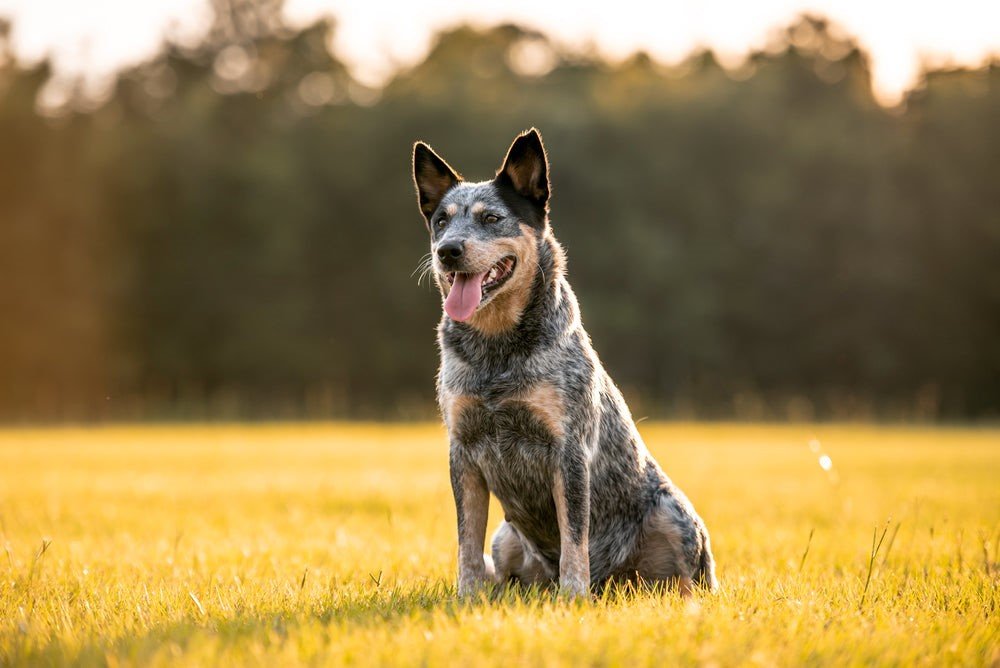Top Dog Breeds with the Fewer Health Issues: A Guide for Future Pet Owners
Are you thinking about getting a dog but worried about health problems? You are not alone. Many future pet owners want a furry friend that will stay healthy and happy for years to come. I will look at some of the healthiest dog breeds that tend to have fewer medical issues. I will also give you tips on how to keep your new pet in top shape.
Why Health Matters When Choosing a Dog?
When picking a dog, it is smart to think about health. Dogs with fewer health problems often live longer and need less costly vet care. They also tend to be more active and playful throughout their lives. This can mean more fun times with your pet and less stress for you as an owner.
Factors That Affect Dog Health
Before we dive into specific breeds, let us look at what makes some dogs healthier than others:
- Genetics: Some breeds have been carefully bred to avoid common health issues.
- Size: Smaller dogs often live longer than larger breeds.
- Activity Level: Active dogs tend to stay fit and healthy.
- Diet: Good food helps keep dogs healthy from the inside out.
- Care: Regular vet check-ups and proper grooming play a big role in health.
Top 10 Dog Breeds with the Fewer Health Issues
Here is a list of dog breeds known for having fewer health problems:
- Australian Cattle Dog
- Beagle
- Chihuahua
- German Shorthaired Pointer
- Greyhound
- Havanese
- Mixed Breed Dogs
- Poodle
- Siberian Husky
- Welsh Corgi
Let us take a closer look at each of these breeds and what makes them stand out in terms of health.
1. Australian Cattle Dog

Australian Cattle Dogs are known for their toughness and long lifespans. They often live 12-16 years and stay active well into old age. These dogs have few breed-specific health issues, making them a top pick for those wanting a healthy pet.
Key Health Traits:
- Strong bones and joints
- Few genetic health problems
- High energy and stamina
2. Beagle

Beagles are small to medium-sized dogs with big personalities. They are known for being healthy overall, with lifespans of 10-15 years. Beagles do well with regular exercise and a good diet.
Key Health Traits:
- Sturdy build
- Good immune system
- Few breathing problems
3. Chihuahua

Despite their tiny size, Chihuahuas are tough little dogs. They often live 14-16 years or more. Their small size means less stress on joints and bones as they age.
Key Health Traits:
- Long lifespan
- Low risk of hip problems
- Generally healthy teeth
4. German Shorthaired Pointer

These active dogs are built for endurance. German Shorthaired Pointers usually live 10-12 years and stay playful throughout their lives. They need lots of exercise to stay healthy and happy.
Key Health Traits:
- Strong heart and lungs
- Few skin problems
- Good overall health
5. Greyhound

Greyhounds might surprise you on this list. Despite being large dogs, they often live 10-14 years. They have few breed-specific health issues and are known for being calm and easy-going.
Key Health Traits:
- Low body fat
- Strong muscles
- Few joint problems
6. Havanese

These small, fluffy dogs are not just cute, they are also quite healthy. Havanese typically live 14-16 years and have few genetic health issues. They adapt well to different lifestyles, from city apartments to country homes.
Key Health Traits:
- Good eye health
- Strong teeth
- Few breathing issues
7. Mixed Breed Dogs

Mixed breed dogs, or mutts, often benefit from genetic diversity. This can mean fewer health problems passed down from purebred parents. Mixed breeds can live anywhere from 10-16 years, depending on their size and care.
Key Health Traits:
- Varied genetic makeup
- Often fewer breed-specific issues
- Can inherit best traits from both parents
8. Poodle

Poodles come in three sizes (standard, miniature, and toy), but all are known for being smart and healthy. They usually live 12-15 years and stay active well into old age. Poodles need regular grooming but have few health problems.
Key Health Traits:
- Low-shedding coat
- Good eye and ear health
- Smart and trainable
9. Siberian Husky

These beautiful dogs are built for endurance. Siberian Huskies typically live 12-14 years and stay active throughout their lives. They have few genetic health issues but need lots of exercise.
Key Health Traits:
- Strong heart and lungs
- Good in cold weather
- Few skin problems
10. Welsh Corgi

Do not let their short legs fool you – Welsh Corgis are sturdy dogs. They usually live 12-15 years and stay playful well into their senior years. Corgis need regular exercise to stay at a healthy weight.
Key Health Traits:
- Strong herding instincts keep them active
- Good overall health
- Sturdy build despite short stature
Comparing Health Traits
Here is a table comparing some key health traits of these breeds:
|
Breed |
Average Lifespan |
Exercise Needs |
Common Health Concerns |
|
Australian Cattle Dog |
12-16 years |
High |
Hip dysplasia (rare) |
|
Beagle |
10-15 years |
Moderate |
Ear infections |
|
Chihuahua |
14-16 years |
Low to Moderate |
Dental issues |
|
German Shorthaired Pointer |
10-12 years |
High |
Hip dysplasia (rare) |
|
Greyhound |
10-14 years |
Moderate |
Sensitive skin |
|
Havanese |
14-16 years |
Moderate |
Cataracts (in old age) |
|
Mixed Breed |
10-16 years |
Varies |
Varies |
|
Poodle |
12-15 years |
Moderate to High |
Hip dysplasia (rare) |
|
Siberian Husky |
12-14 years |
High |
Eye issues (rare) |
|
Welsh Corgi |
12-15 years |
Moderate |
Back problems |
Tips for Keeping Your Dog Healthy
No matter which breed you choose, these tips can help keep your dog healthy:
- Regular Vet Check-ups: Yearly exams can catch issues early.
- Proper Diet: Feed your dog high-quality food suited to their age and size.
- Exercise: Daily walks and playtime keep your dog fit and happy.
- Dental Care: Brush your dog's teeth or provide dental chews.
- Grooming: Regular brushing and baths keep skin and coat healthy.
- Mental Stimulation: Puzzles and training keep your dog's mind sharp.
- Love and Attention: A happy dog is often a healthy dog!
FAQs
Q: Are mixed-breed dogs really healthier than purebreds?
A: Mixed breed dogs can be healthier due to their diverse genes. This can lower the risk of inherited health issues common in some purebreds.
Q: How much does a dog's size affect its health?
A: Generally, smaller dogs live longer than larger breeds. However, good care and genetics play big roles in the overall health of dogs of all sizes.
Q: Can a dog's diet really impact its health that much?
A: Yes, a good diet is key to a dog's health. Proper nutrition supports the immune system, keeps weight in check, and helps prevent many health issues.
Q: How often should I take my dog to the vet?
A: Most adult dogs should see a vet once a year for check-ups. Puppies, senior dogs, or those with health issues may need more frequent visits.
Q: Does spaying or neutering affect a dog's health?
A: Spaying or neutering can have health benefits, including reducing the risk of certain cancers and behavioral issues. Consult with your veterinarian about the optimal time for this procedure.
Conclusion
Selecting a dog breed with fewer health issues can lead to a happier, more enduring relationship with your pet. Remember, while these breeds tend to be healthier, every dog is unique. Good care, proper diet, and regular vet check-ups are key to keeping any dog healthy and happy.
When choosing a dog, consider your lifestyle and the amount of time and energy you can dedicate to your new companion. With the right care and attention, dogs of all breeds can live long, healthy lives full of love and joy.
Looking for a healthy pup? Please read our guide to dog breeds with fewer health issues. Find the perfect healthy dog for your lifestyle and learn how to keep them in top shape.



.jpg)



